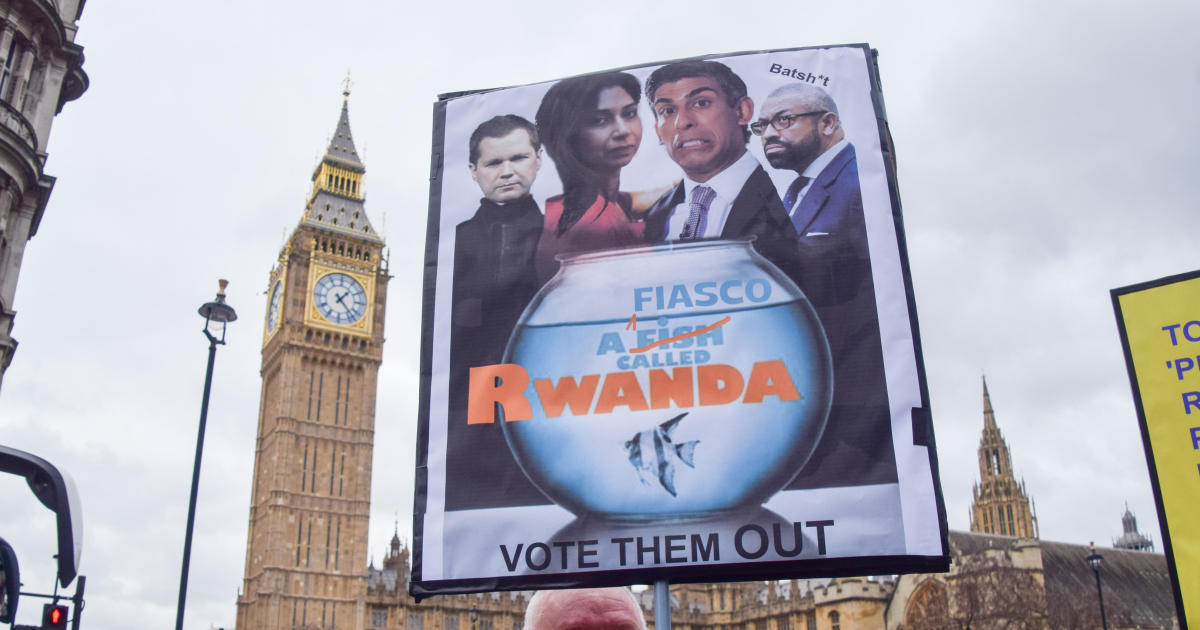Supreme Court ruling deals another blow to organized labor
The Supreme Court ruled Thursday that a concrete company could sue a union after striking employees walked out and left concrete running in trucks, a ruling that labor advocates fear could more broadly weaken worker rights.
The 8-1 decision in Glacier Northwest v. International Brotherhood of Teamsters Local 174 opens the door for employers to sue workers for damages if they believe that their activism hurt the business. The decision, which comes as strikes across the U.S. are at a 15-year high, could make walking out much riskier for workers, labor activists fear.
Under the National Labor Relations Act, workers have a legal right to strike, except in cases that include deliberate property destruction and violence. The 1935 law puts most workplace disputes outside the reach of state courts and under the purview of the National Labor Relations Board.
Noel Francisco, the attorney representing Glacier, said the decision "vindicates the longstanding principle that federal law does not shield labor unions from tort liability when they intentionally destroy an employer's property. Our client is entitled to just compensation for its property that the union intentionally destroyed."
Teamsters International president Sean O'Brien decried the Supreme Court's ruling as "throwing out long-standing precedent and legislating from the bench."
"The ability to strike has been on the books for nearly 100 years, and it's no coincidence that this ruling is coming at a time when workers across the country are fed up and exercising their rights more and more," O'Brien said in a statement. "Make no mistake — this ruling has everything to do with giving companies more power to hobble workers if any attempt is made to fight back against a growing system of corruption."
Protecting company property
The truckers strike case stemmed from a 2017 labor dispute in Washington state between workers represented by Teamsters Local 174 and their employer, Glacier Northwest, a Seattle concrete manufacturer. When negotiations over a new contract reached an impasse, the employees walked off the job while their trucks were filled with concrete — a perishable substance that quickly becomes unusable.
Glacier then sued the union in state court, claiming the strike was timed deliberately to destroy its "property" — the concrete and trucks.
- Strikes up 50% in 2022, as workers exert leverage in a tight labor market
- How a 2017 strike could slam shut the new era of worker activism
The lawsuit was initially dismissed, with the state court saying that it should be decided by the National Labor Relations Board. But the Supreme Court in October of 2022 took up Glacier's appeal.
The question for the high court was how should the case proceed. Writing for the majority, Justice Amy Coney Barrett said the lower court was wrong in dismissing the suit and that the Glacier workers' actions were not protected.
"[B]y reporting for duty and pretending as if they would deliver the concrete, the drivers prompted the creation of the perishable product. Then, they waited to walk off the job until the concrete was mixed and poured in the trucks," she wrote. "In so doing, they not only destroyed the concrete but also put Glacier's trucks in harm's way."
Four other justices joined Barrett's decision; three others filed or joined concurring opinions.
In a lone dissent, Justice Ketanji Brown Jackson said the decision would "erode the right to strike" and undermine the National Labor Relations Board's oversight of workplace law.
"Workers are not indentured servants, bound to continue laboring until any planned work stoppage would be as painless as possible for their master. They are employees whose collective and peaceful decision to withhold their labor is protected by the NLRA even if economic injury results," she wrote.
Chilling effect?
The decision now offers a pathway for employers to potentially sue unions — or workers personally — if they allege the employees deliberately damaged company property during an action, said Dan Altchek, an employer-site lawyer at the firm Saul Ewing.
"The litigation risk for unions is certainly heightened," he said.
The Glacier decision is the latest in a series of measures taken by the conservative-leaning Supreme Court that weaken existing labor protections. In 2021, the court rolled back union organizers' ability to meet with farm workers at their worksite during off hours. And in Janus v. AFSCME, the court ruled in 2018 that public-sector unions may not make nonmembers pay for the cost of collective bargaining.
The latest decision is likely to chill employee activism because it could make workers financially liable for damages to their employer if they stop work, according to Sharon Block, executive director of the Labor & Worklife Program at Harvard Law School.
"In contemplating whether to go out on strike or not, that's another risk factor that union members have to weigh," Block told CBS MoneyWatch.
"It's creating a further responsibility for workers to mitigate the impact of the action they're deciding to take. That's inherently a confusing thing they have to do," she added. "I think it will make the decision to go out on strike much harder."
For now, noted Altchek, the decision raises far more questions than it answers, such as what kinds of property damage companies can now claim against unions.
"Beyond the easy examples of physical equipment and the premises, it can also be intellectual property, goodwill — so we may see some cases testing the limits of those definitions," he said.



